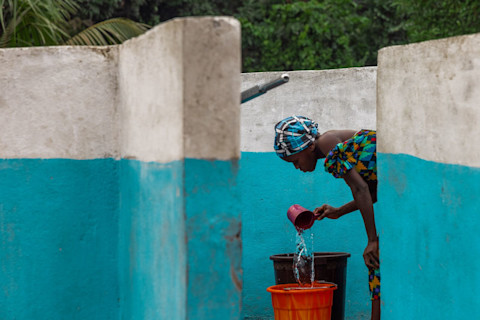We should start with “water changes everything.”
We say it. You say it. We all say it.
It’s repeated so often because it’s true. Water does change everything. Health. Time. Education. Opportunities. The trajectory of the future for entire communities. Clean water changes all of those elements, and so many others, for the better.
But water isn’t a solo act. It requires an immense amount of teamwork to be successful. It’s a story we’ve witnessed time and time again, one beautifully demonstrated by a small community tucked into the Kenema District of Sierra Leone.
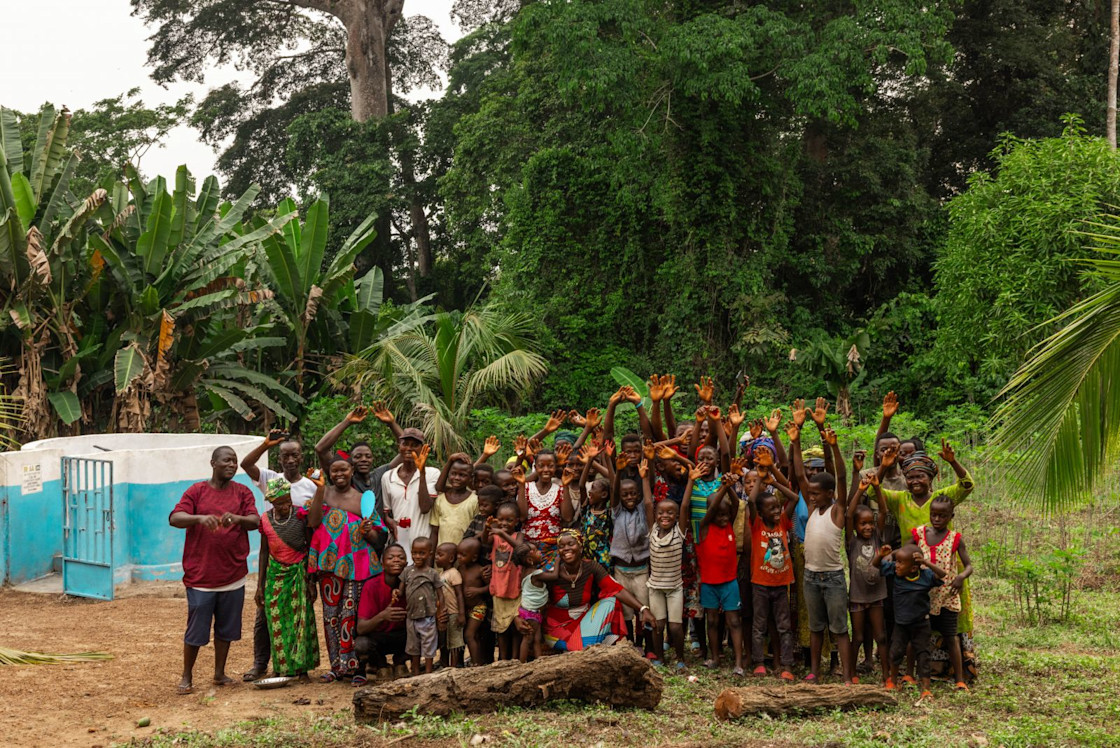
Before supporters like you funded a water project in this community, their only water source was a stream. And while they tried to keep it clean — even going so far as requesting that people take off their shoes before nearing the water to limit contamination — waterborne illnesses were quick to spread. In fact, every person we talked to told us a story about getting sick.
Now, after receiving a water project in 2020, all of that has changed. Homes are adorned with handwashing stations, latrines, dish drying racks, clotheslines — all of the markers of a healthy community. People look relaxed. Smiles come easily. You can feel that a weight has been lifted.
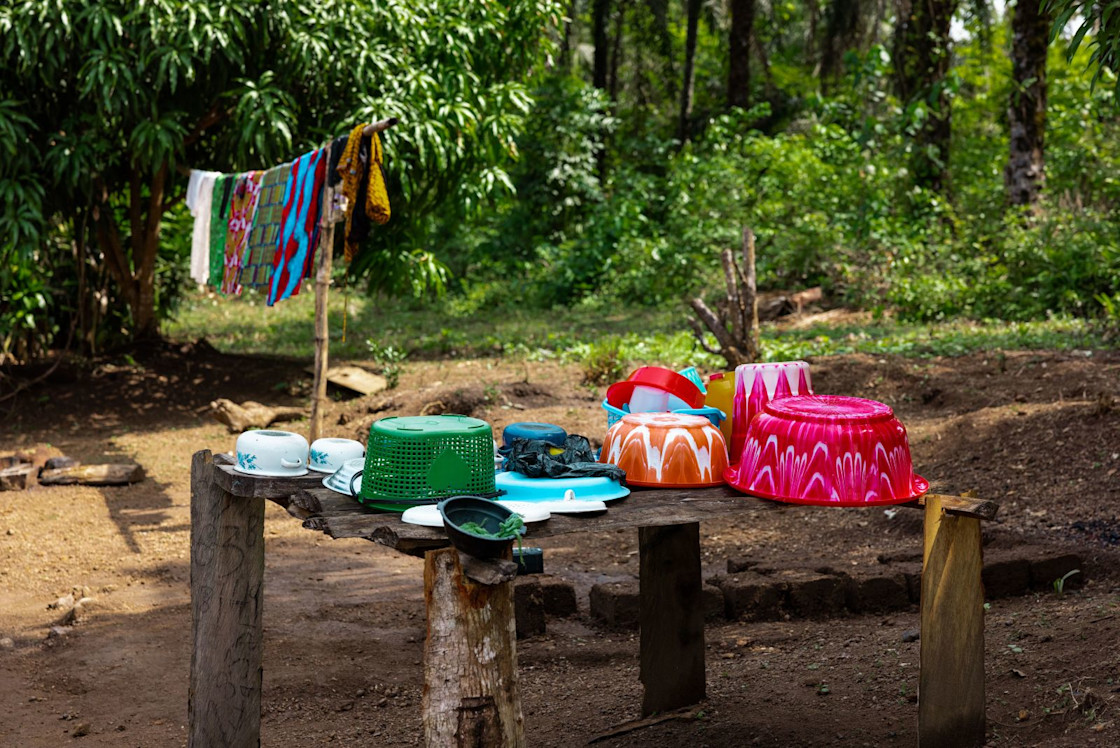
It’s because of clean water, yes. But the sustainable impact of clean water is only possible because of the dedication and commitment of many.
Long before (and even after) clean water arrived, our local partner visited frequently. They led trainings on practical aspects of sanitation and hygiene — and, most importantly, set up a water committee to make sure forward progress continued.
Water committees are an essential component of every project we fund. Each committee has about five to eight members, half men and half women, who are responsible for the long-term sustainability of the water project. They are elected by their peers to maintain the water point, develop a business plan to purchase parts for future repairs, and educate community members about sanitation and hygiene. It’s a huge responsibility, and it almost always comes without pay.
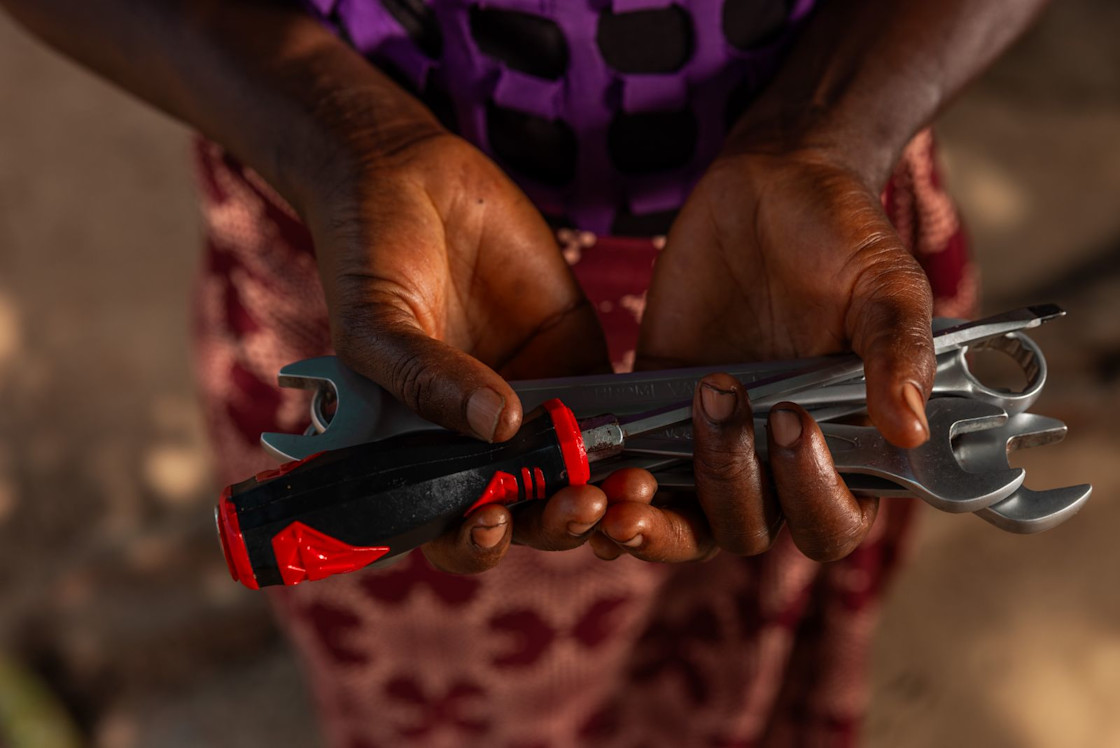
In Sierra Leone, we talked to a few of the people responsible for maintaining this water point. And while it was clear that each member takes their role very seriously, they’re also keenly aware that everyone has a part to play in keeping clean water flowing.
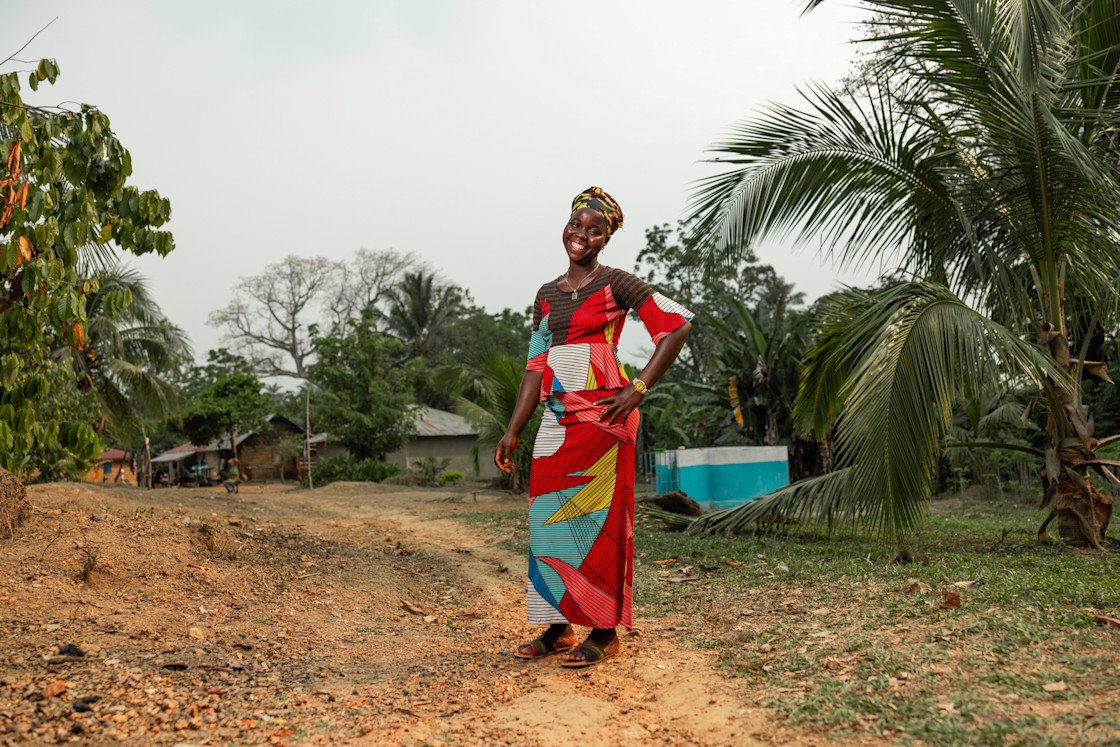
Mariama Kallon Jr.
Mariama serves as the pump caretaker, which means she’s responsible for keeping the area around the hand pump clean. Before, dirty water made both Mariama and her daughter incredibly sick — to the point of hospitalization. Today, she works hard to make sure those days never return.
“I hope it [the water point] still works while my daughter grows up. This is why we are trying very hard to protect the water from germs and contamination. I always send advice to my family and friends in my hometown to take good care of their hygiene. Because without good community hygiene, even if they have clean water, they will not see any difference.”
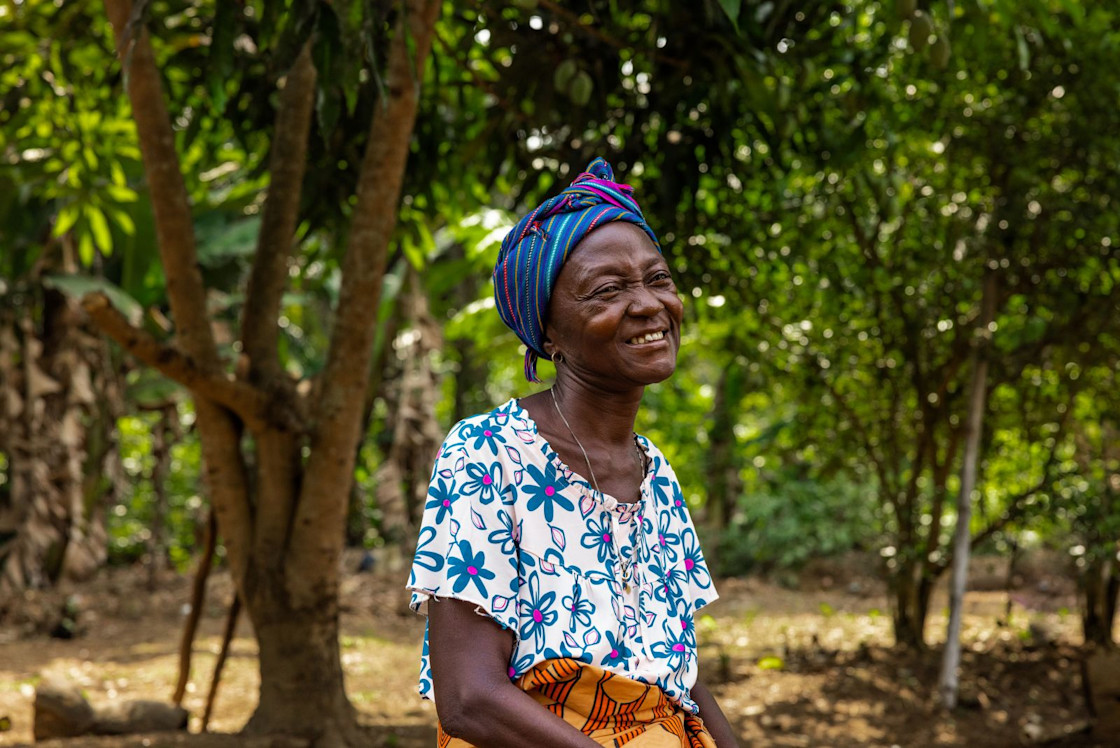
Mariama Sama
Nominated by the community as someone who is knowledgeable and admired, Mariama Sama serves as the keyholder for the water point. After unlocking the gate to the water point each morning, she pumps water to check if the compression is low or high. She also checks the cleanliness of the hand pump — and she will call Mariama Kallon Jr. if it needs cleaning.
“I am happy because there is sanitation. I have food to eat. The health of my children is better. Now, I can lie down and sleep quietly. We had been living in the past. We have changed. Now, we are not living that way. Now, my village is clean.”
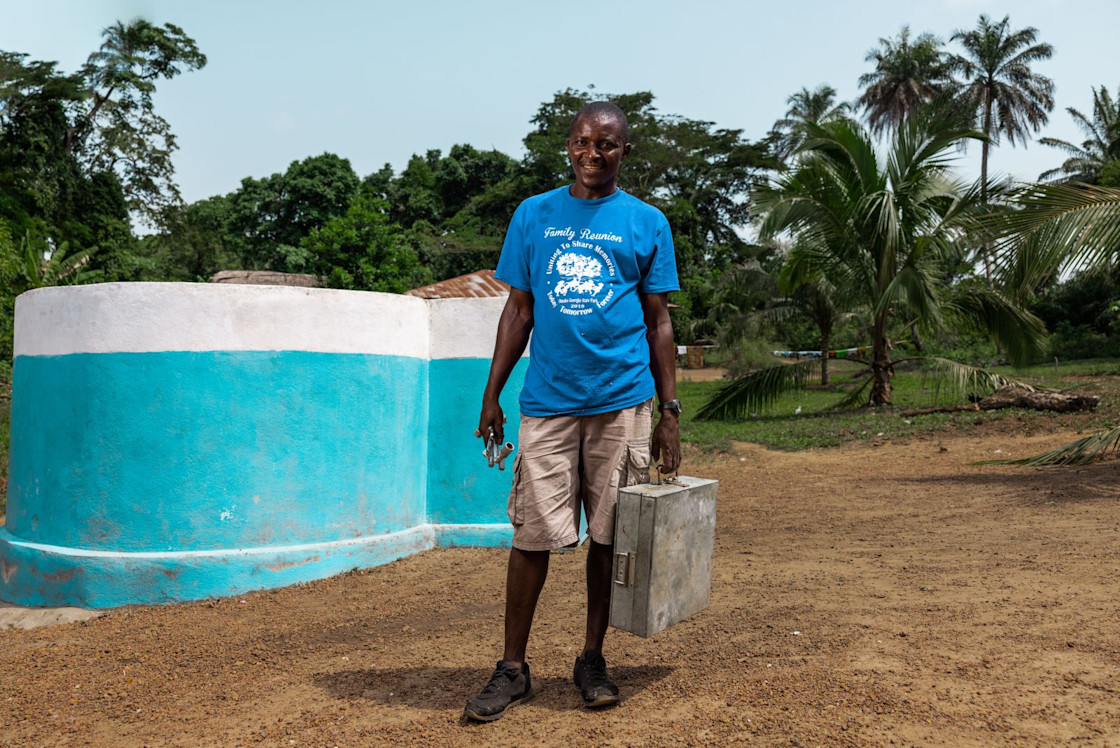
Mohamed Sani Bawoh
Mohamed’s reputation for repairing things — bikes, generators, and anything else that needs fixing — made him the ideal candidate for the role of pump mechanic. Since 2020, the pump has only broken down once. It was reported at 7 a.m. one morning and by 3 p.m., Mohamed had resolved the problem. His quick-fix abilities might come down to the special relationship he has with the pump: He can tell if something is wrong just by listening.
“It is very good to have this role. Water is life. The maintenance of that pump is one of my passions, and I will continue to repair it.”
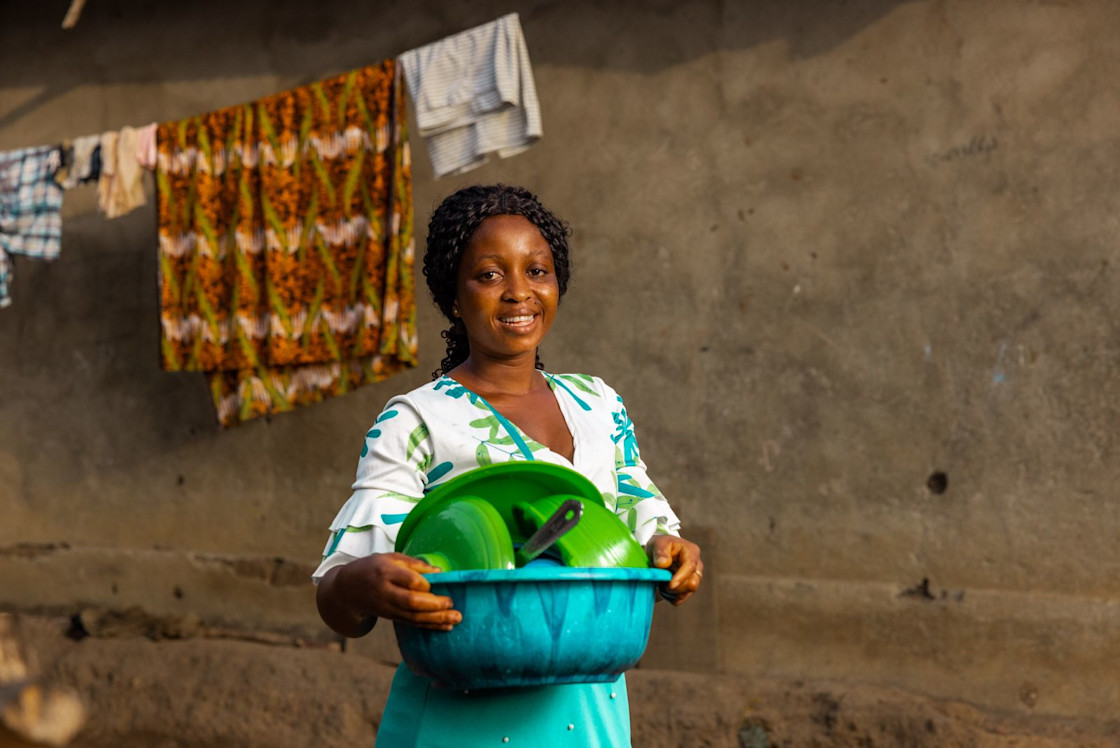
Massah Kallon
Even before clean water arrived in her community, Massah placed a high value on cleanliness, knowing that it’s directly related to good health. Her reputation for living “in a sanitary way” made her an obvious choice for town sanitary. She’s responsible for walking around the community and looking for garbage — and will ask people to pick up their space if she sees any. She also ensures that people are using their clotheslines, drying racks, and latrines.
“I am drinking clean and safe water. The sickness that used to stop me no longer stops me.”
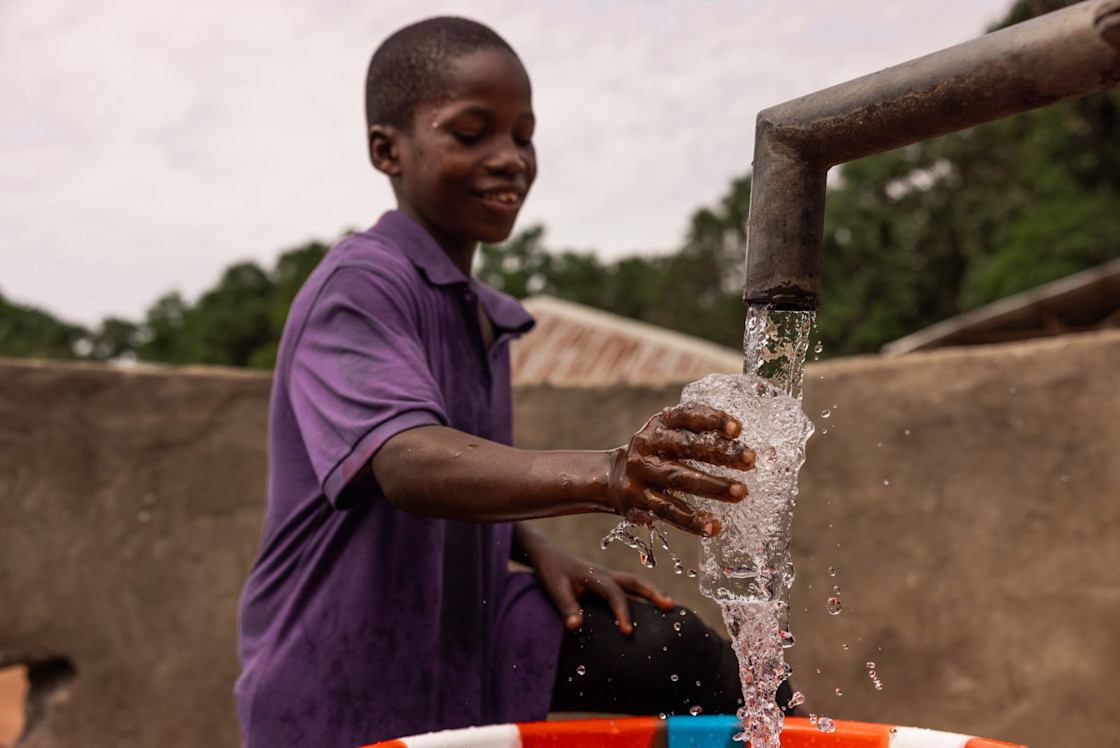
The dramatic changes that have taken place here are a testament to what’s possible when we all do our part.
You choose to give clean water.
Our local partners build the water projects and offer hygiene and sanitation training to the communities.
Massah and Mohamed and both Mariamas — as well as the other 511 members of this community, and millions more people around the world — embrace those lessons and carry them forward, transforming their families and communities in the process.
It’s a team effort, always. And we’re forever grateful to have you on our team.
Photos By: Cubby Graham

